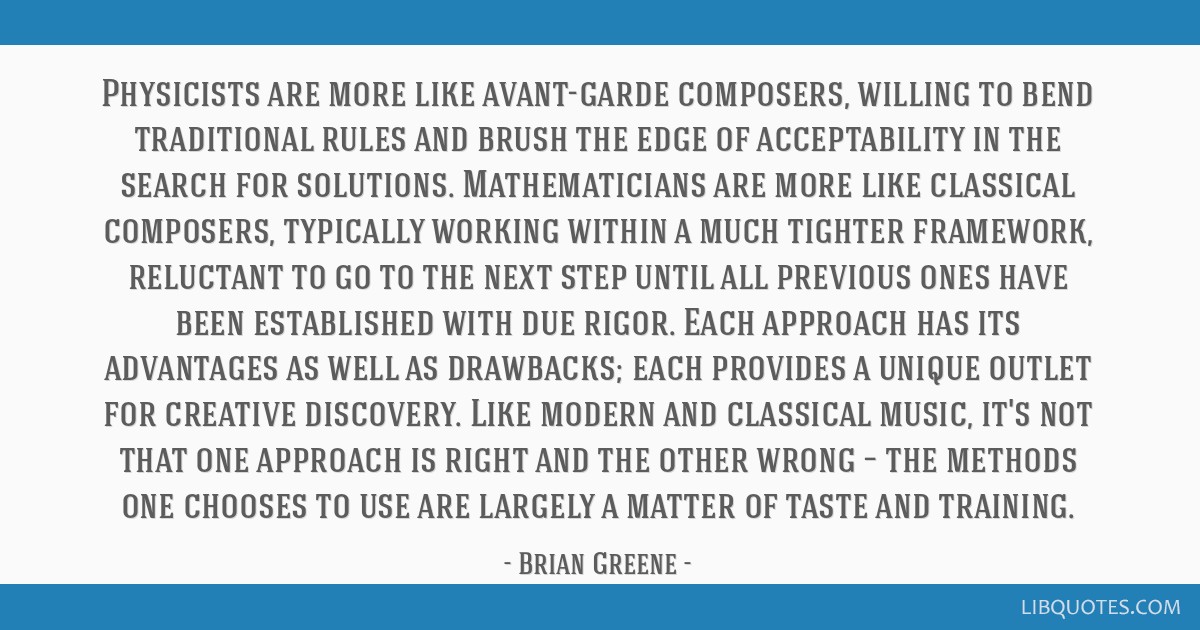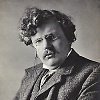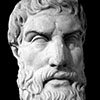Physicists are more like avant-garde composers, willing to bend traditional rules and brush the edge of acceptability in the search for solutions. Mathematicians are more like classical composers, typically working within a much tighter framework, reluctant to go to the next step until all previous ones have been established with due rigor. Each approach has its advantages as well as drawbacks; each provides a unique outlet for creative discovery. Like modern and classical music, it's not that one approach is right and the other wrong – the methods one chooses to use are largely a matter of taste and training.
Brian Greene (2000). The elegant universe: superstrings, hidden dimensions, and the quest for the ultimate theory. Vintage Books. pp. 271. ISBN 0-375-70811-1.























